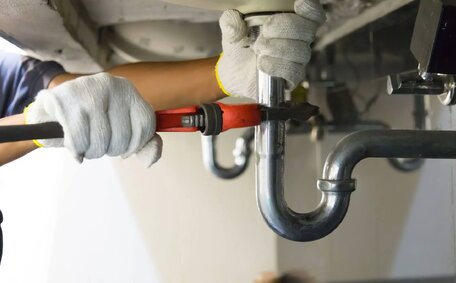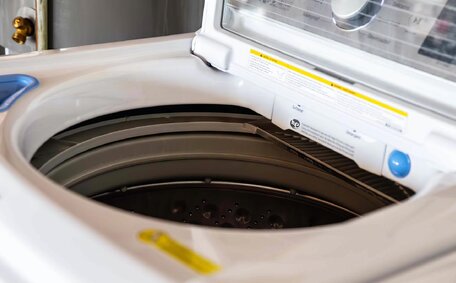Introduction: Who is Responsible for Blocked Drains in Rental Properties?
Landlords and tenants often find clogged drains frustrating. When confronting a blocked sewer drain in your property, questions around responsibility often arise: Who is liable for clearing obstructions in a rental property?
Understanding the causes of blockages and their prevention is crucial.
This article details responsibilities for issues like a blocked shower drain in rental properties, drawing on insights from Carlingford Plumbing. It offers clarity for tenants and landlords on factors such as:
- Typical causes of blocked drains in properties often include
- Preventive steps renters can take to minimise the risk of drain blockages
- The liability of property tenants or owners for clearing drains blocked with obstructions
- Strategies to deal with blocked drains effectively
Drawing on industry expertise, this guide aims to enhance your understanding of drainage responsibilities in rentals. Equipped with a better understanding, both the tenant and property owner can take proactive measures and determine next steps when facing issues with blocked drains in your property.
What Causes Blocked Drains and How to Prevent Them
Blocked drains in rental properties typically result from several factors:
- A common cause blocked drain situation often includes accumulated hair and soap residue in showers and sinks
- Blocked toilets often stem from washing food scraps, fats, oils, and other materials down the kitchen sink heedlessly
- Tree roots infiltrating exterior drainage pipes
- Flushed hygiene products like wet wipes accumulating in pipes
- Damaged or improperly installed plumbing
While defective plumbing makes landlords responsible blocked drain issues, it’s important for tenants to take preventative measures to help avoid clogs:
- Use a drain cover to help clear a drain your home and regularly remove built-up hair/debris
- Allow fats to solidify before disposing and avoid pouring oils directly down drain pathways in your home
- Only flush toilet paper and not substitutes like wet wipes
- You can also use drain cleaners/enzymes to break up light build-up which, if neglected, can eventually cause blocked passages
Owners must maintain their sewer drains and promptly repair blocked sections, scheduling regular inspections and diligently maintaining wastewater pipes to avoid recurrent issues. Routine maintenance by landlords and renter education on prevention can reduce the incidence of blocked drains.
Legal Rights and Responsibilities for Landlords
Landlords have specific legal duties, such as preventing sewer choke through properly functioning hot water systems and intact plumbing. Per the tenancy agreement, under the Landlord Tenant Act 1985, landlords are responsible maintaining residential tenancies in good repair, accounting for normal wear tear over time.
This means your landlord responsible fixing plumbing repairs and ensuring responsible clearing of drain pipes and wastewater systems are in good working order at the start and throughout the residential tenancy period.
Landlords are responsible for fixing drainage blockages and damages, such as faulty pipes during tenancy, unless tenant responsibility is established.
Therefore, in the event of blocked toilets or sewer drains, arranging for a professional plumber to inspect and perform hydrojet services is a crucial step. It is prudent for property owners to maintain logs to track the history of drain servicing. If the blockage has been caused by factors other than tenant negligence, then the landlord likely responsible for clearing blocked passageways, and landlords can take action to recover associated repair costs.
Ultimately landlords must provide functional drainage and conduct necessary repairs to satisfy legal responsibilities, especially when a drain becomes blocked on your property. Liaising with a reputable plumber like Carlingford Plumbing can support owners to not only fix drains promptly when it becomes blocked, but understand tenant rights and navigate landlord obligations smoothly when plumbing issues inevitability arise.
Legal Rights and Responsibilities for Tenants
As tenants renting a property, the tenant must adhere to defined responsibilities concerning proper use and care of plumbing fixtures to avoid blockages.
The NSW Residential Tenancies Act 2010 holds tenants liable for intentional or negligent damage to the property’s sewerage drain. This includes maintaining wastewater drains and addressing issues from improper practices, such as flushing wet wipes. Should a blockage occurs due to improper use, such as flushing thickened oils or non-flushable products, the tenant responsible must be held liable for repair costs.
To comply with tenancy agreements, renters should:
- Never pour fats, oils or food scraps directly down sinks or drains
- Only flush toilet paper and not substitutes like wet wipes down toilets
- Use drain strainers to catch hair and food particles during washing up
- Avoid planting trees with invasive root systems close to drainage pipes
- Contact your landlord promptly if plumbing fixtures break or your blocked drain issues occur
Preventative measures show tenants’ care for the property by addressing maintenance aspects promptly, preventing substances like grease and hair from clogging stormwater drainage. However, for emergencies affecting stormwater drains or a fully stopped drain, coordinating with the landlord for emergency plumbing services is crucial, especially when costs hinge on proof of misuse.
Determining Responsibility for Existing Drain Blockages
Determining responsibility for a blocked drain in a rental property can be challenging when the cause is unclear.
Reviewing the property’s initial condition and maintenance records helps determine the responsibility for blocked sewers and the drainage system’s past performance. If no issues were recorded, then a blockage arising during the tenancy signals a time to determine who responsible blocked, whether the property owner or tenant.
In tricky cases with unclear origins, your tenant may need to consult with a drainage expert or licenced plumber to assess blocked areas. Technologies such as pipe cameras can reveal signs blocked conduits, pinpointing who should be held accountable for the exact cause your drain is affected and determine if blockages caused by various factors are present:
- Signs of tenant neglect such as grease fat accumulations or non-flushable items causing blockages
- General wear and tear, including cracks or root invasion suggesting older pipes, can lead to significant drainage issues
- Resolving any discovered plumbing problem, such as foreign objects or damaged infrastructure indicative of vandalism or botched installation
With expert insights, it’s easier to devise repair strategies for drainage issues, particularly those related to sewer lines, clarifying responsibility under tenancy agreements and laws. Any repairs like hydrojetting required to restore drainage flow could also be fairly assigned to landlords or tenants.
Leveraging maintenance logs, fair trading practices, and expert plumbing assessments, both parties should seek professional input to ensure the drainage system remains clear, even when responsibility is unclear.
Temporary Drain Unblocking Methods for Tenants
As a tenant dealing with blocked drains, maintaining the property’s safety and habitability can be challenging. Here are some temporary measures to try before contacting the landlord:
- Use a plunger over the drain for several minutes, repeatedly covering the drain to force air pressure down
- Attempt drain snakes or augers to hook and pull out hair/debris
- Pour hot water mixed with baking soda and vinegar down your drain
- Use a wet/dry vacuum to suck up standing water
However, a professional assessment is essential, as these measures are temporary and delaying repairs can worsen the issue. I know it can be trying, but for drains that are recurring or fully blocked, tenants should make it a point to immediately contact your landlord, in accordance with your lease agreement. As repair maintenance can be sought for damage possibly caused by tenant negligence may increase liability, it’s advisable to lodge maintenance requests with urgency to get problem fixed professionally instead of taking extensive measures into your own hands.
For persistent blockages that may signal broader problems, contact Carlingford Plumbing for a comprehensive assessment and necessary repairs.
Seeking Professional Drain Maintenance and Repairs
When drains become blocked persistently despite makeshift clearing attempts, or when significant functionality issues arise, it’s essential to discern who is responsible. Calling professional plumbing services is strongly recommended for both tenants and landlords.
As licenced, fully-trained experts, Carlingford Plumbing specialises in sustainable drain solutions, available for urgent repairs in the Carlingford region of Sydney and throughout the North West. Our real estate savvy team is experienced in fixing blocked issues, and can be called out to perform thorough diagnostics and carry out an assessment of any drains there using CCTV pipe inspection and advanced hydrojetting to clear stubborn obstructions and identify necessary maintenance requirements. Where tenant misuse or negligence is found to have caused blockages, our licensed plumbers can provide documentation supporting landlords determining who pays blocked drain issues.
Seeking early professional help can rectify minor drain issues, such as a blocked sewer, before they escalate to major damage or complete failure. Tenants and landlords can save time, money, and stress by enlisting trustworthy plumbers for drainage system maintenance.
Encounter blocked drains? Reach out through our 24/7 hotline at 1300 349 338 or via email at jobs@carlingfordplumbingservices.com.au for immediate assistance.
Preventing Future Drain Blockages and Disputes
To avoid recurring drain issues and disagreements over responsibility, both tenants and landlords can take proactive measures:
- Conduct thorough property inspections at the start and end lease periods, recording conditions of the drain in your dwelling
- Establish clear guidelines for plumbing system use within lease agreements
- Educate tenants on the best way to handle drain care through orientation
- Arrange for a licensed plumber to conduct professional drain inspections every 3-5 years to identify and address potential problems
- Document all drain servicing and repairs over the tenancy period and notify the other party as soon as possible when any drainage problems arise to coordinate next steps
- Notify the other party as soon as possible when any drainage problems arise to coordinate next steps
Preventative maintenance, collaboration with local drainage authorities and Sydney Water, adherence to usage guidelines, and clear communication can prevent many potential drain issues. Both tenants and landlords play a role in maintaining long-term plumbing health.
Should questions of liability arise however, Carlingford Plumbing can be engaged to assess causes and help determine responsibility fairly through CCTV drain checks and transparent reporting.
Collaboration allows landlords and tenants to maintain functional drainage systems and prevent issues like leaking taps.





